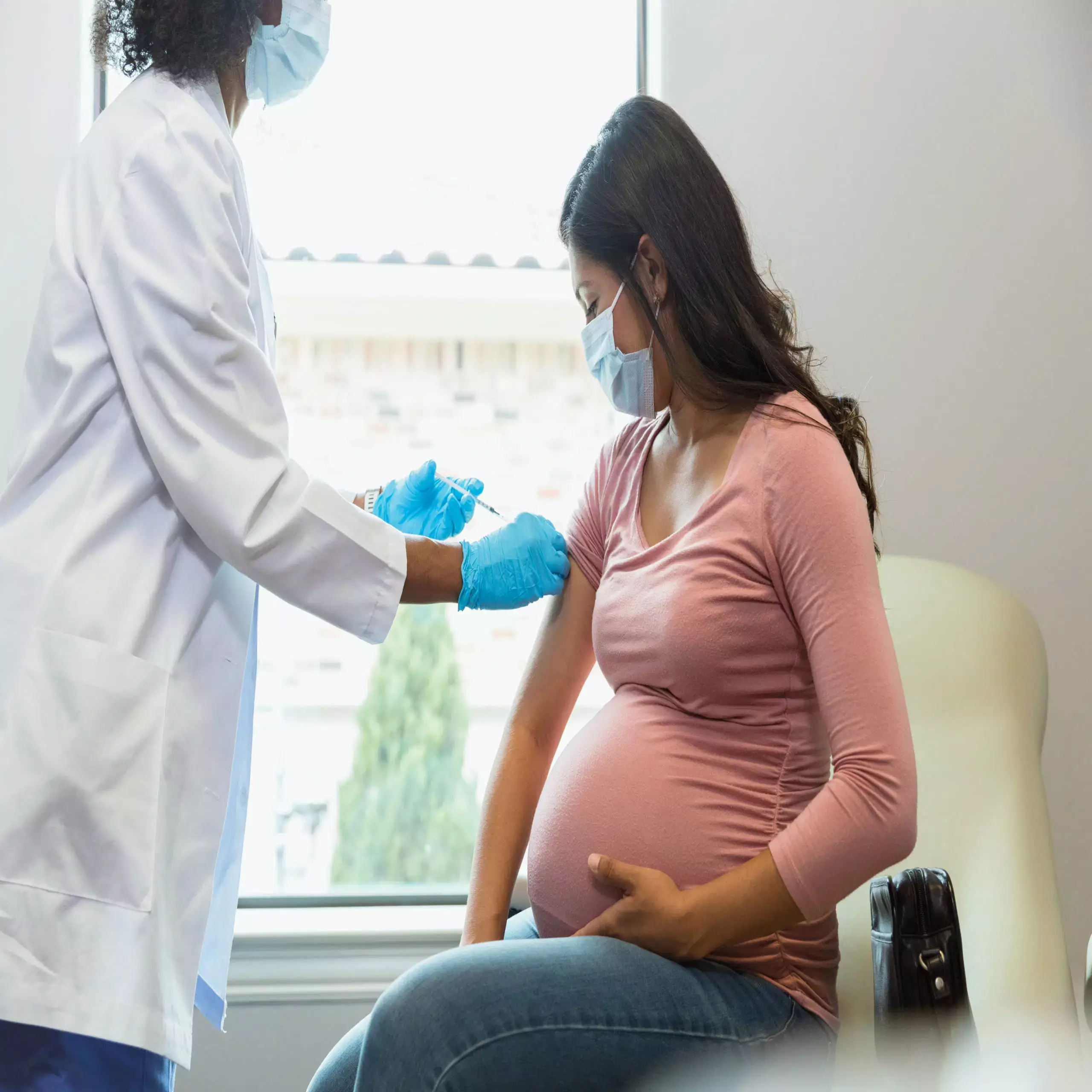The COVID-19 pandemic has brought innumerable challenges, with pregnant women finding themselves in a particularly precarious position. The interconnectedness of maternal health and fetal development has amplified the need for effective preventive measures, prominently the COVID vaccine. Vaccines, which have been shown to be safe and effective for individuals aged six months and older, serve as a crucial safeguard against severe COVID-19 complications. For expectant mothers, vaccination not only protects them but also lays a sturdy foundation for their child’s immunity.
Despite the availability and accessibility of these vaccines in the United States—free of charge to all—the uptake among pregnant women tends to lag behind. Current statistics from the Centers for Disease Control and Prevention (CDC) indicate that only 67% of pregnant individuals have received the COVID vaccine. This disparity raises critical questions about public health messaging and the barriers that expectant mothers face in making informed choices regarding their health and that of their unborn children.
Research Findings: Antibody Transfer and Protection
Recent studies provide compelling evidence supporting the benefits of COVID vaccination during pregnancy. A pivotal study detailed in The Journal of the American Medical Association (JAMA) investigated how effectively the mRNA vaccines transfer protective antibodies from mother to fetus. Conducted at Massachusetts General Hospital (MGH), this research demonstrated that infants born to vaccinated mothers showed sustained antibody levels well into their early months—contrasting sharply with those born to unvaccinated mothers who had experienced COVID infections.
The findings showed remarkable results: babies who were born to mothers vaccinated during their pregnancy had a 61% reduced risk of hospitalization due to COVID-19 compared to infants of unvaccinated mothers. The transfer of antibodies via the placenta occurs most efficiently when vaccinations take place during the early to mid-third trimester, highlighting the importance of timing in vaccination schedules. This knowledge empowers expectant mothers to make timely decisions that could significantly impact their babies’ health outcomes.
The Critical Window for Vaccination
Timing is everything when it comes to vaccination during pregnancy. Notably, studies suggest that administering the vaccine between weeks 20 to 32 of gestation is optimal. This window coincides with a peak in placental transfer effectiveness, ensuring that the infant receives the maximum possible antibody protection. Delaying the vaccine or only partially vaccinating by receiving just one dose prior to birth may not confer the same level of immunity.
Research further emphasizes that fully vaccinated mothers create a robust environment of protection for their newborns. Those who receive a booster shot during this critical timeframe exhibit even higher antibody levels, thus enhancing their child’s immunity. The imperative is clear: mothers must prioritize their vaccinations not only for their safety but also to empower their babies against potential COVID-19 threats.
The Benefits of Maternal Vaccination
The totality of research underscores the undeniable link between maternal COVID vaccination and infant health outcomes. The overwhelming evidence illustrates that mothers who are vaccinated foster an additional layer of immunity for their infants, helping to fend off severe illness in the early stages of life. Among the significant findings is that higher antibody levels in umbilical cord blood correlate strongly with a lower incidence of hospitalization in infants—a reality that should resonate deeply with expecting mothers.
In this context, the role of healthcare providers cannot be overstated. They must engage expectant mothers with transparent, evidence-based information about vaccinations, dispelling myths and alleviating fears. Rather than vague reassurances, healthcare systems should provide clear, actionable data that underscores the safety and efficacy of vaccination in pregnancy and its essential role in safeguarding future generations.
Overcoming Hesitation: A Call to Action
A blend of misinformation, fear, and the complexities surrounding pregnancy can result in hesitancy regarding vaccination. Addressing these issues is paramount. Pregnant individuals must not only be encouraged to get vaccinated but should also be given a supportive network that facilitates decision-making for their health and that of their child. Engagement from the community—including schools, healthcare facilities, and public health campaigns—will be crucial in building confidence in vaccination.
As the world continues to grapple with the ongoing pandemic, one thing remains clear: COVID-19 vaccination for pregnant individuals is not just an individual decision but a community health imperative. The greater good rests on ensuring that mothers are vaccinated, thus paving the way for thriving future generations. The data is compelling, and the future of maternal and infant health hangs in the balance—vaccination is clearly a powerful tool in providing the protection that both mothers and their babies so desperately need.

